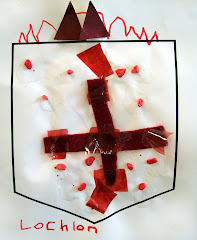With many of the 4's
moving towards starting school I thought some tips might come in
handy. Starting school can be a big change for your child – and a big
change in your family life too. Although it’s an exciting time, it’s normal to
feel a little worried or sad about it. Keeping your worries to yourself
and letting your child know
that you think he’ll go well at school helps your child feel positive too.
Here are tips to help you and your
child feel ready for starting school.
Getting familiar with school
·
If your child is at a
preschool with a school transition program, try to make sure your child is
at preschool on the days the children visit ‘big school’. If your child isn’t
at preschool, visit the school yourselves, or see if the school runs its own
transition day. This helps your child get familiar with the grounds, the
classroom, the toilets, the bubblers or drinking fountains, the noise of the
big kids and so on.
·
Meet your child’s
teacher together and give your child an idea of how many children will be in
the class. Let your child know that teachers are there to help, and she can ask
for help any time.
·
Explain the basic school
rules, like putting up your hand, asking before going to the toilet, listening
quietly when you need to, and doing what the teacher asks.
·
Make sure your child
knows where you’ll be picking him/her up.
Practical preparations at home
·
Get your child to try on
the uniform and shoes before the first day, just to make sure everything fits.
It’s a good idea to have your child wear new school shoes for a few days before
school starts to wear them in.
·
Make sure your child has
all the extras – bag, hat, art smock, library bag and so on.
·
Have a practice run with
the lunch box to make sure your child can take off the lid. You could even do
this before buying the box.
Feelings
·
Try to organise
playdates with other children before the first day of school. It’ll help if
your child knows another child from class before school starts.
·
Give your child lots of
love and support. Be excited and enthusiastic about your child starting school.
This sends your child the positive message that school is exciting and that
they’ll cope and have fun.
·
Think about how you’ll
manage your feelings on the first day. Even if you’re feeling sad or worried,
it can help to keep these feelings from your child. Instead, try to see your
child off with a happy, confident goodbye – and plan something nice for
yourself too, like coffee with a friend.
·
Read a children’s book
about starting school with your child. Reading books about school together can
help you talk with your child about his feelings. You could try Starting school by
Janet and Allen Ahlberg, or Starting
school by Jane Godwin and Anna Walker.
Starting school: the
early weeks
Your child is likely to need a lot
of support when school starts. There are some simple things you can do to help
these first few weeks go smoothly:
·
Try to drop off your
child at school before the bell goes in the morning. Also pick your child up on
time. If you’re late it could make your child feel very anxious.
·
Try to make after-school
time a bit special, with a snack and time for the two of you to chat.
·
Be patient if your child
wants to blurt out every little detail about school, or clams up completely.
You could try saying something like, ‘Tell me one good thing about your day’,
rather than asking lots of questions.
·
Try to be flexible with
snacks and meals. Your child will probably be very hungry after school. If you
give them a small, healthy snack straight after school, it’ll help to keep them
going until dinner.
·
Don’t expect too much
academic progress too soon. If your child is happy and seems to be enjoying
school, that’s a real achievement. The rest will come later.
·
Remember that it’s
normal for children to play with lots of different children, and even to play
on their own sometimes. It takes a while before they settle into a group of
friends.
·
Your child is likely to
be very tired after school for the first few weeks. It's a good idea to limit
after-school activities for the first term and stick to a bedtime routine if
you can.
Emma McKenzie
Teacher - Edgerley Room
Wellbeing Facilitator
